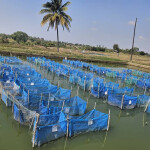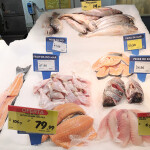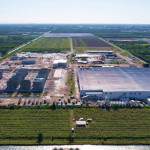New research into early mortality syndrome (EMS) in farmed shrimp has determined that poor water quality can trigger the condition that has decimated crops in southeast Asia.
The research comes from Noriaki Akazawa, managing director of Agrobest Sdn. Bhd. in Malaysia, along with Kinki University and the National Research Institute of Aquaculture in Japan. The Global Aquaculture Alliance (GAA) is releasing the research first, but it is expected to appear in a peer-reviewed journal as well.
“The research results are encouraging because they provide shrimp farmers with a tool to improve management of the disease in ponds,” GAA wrote in a statement announcing the research findings.
EMS, known under the technical name of Acute Hepatopancreatic Necrosis Syndrome, has been blamed for the deaths of millions of shrimp in aquaculture pens throughout southeast Asia, and reportedly costs the industry there an estimated USD 1 billion (EUR 753.5 million) per year.
About six weeks ago, a different research project determined that a bacterial agent ultimately causes the disease, but the new research suggests the disease is triggered by a higher pH level in aquaculture pens.
The pH level is used to determine clarity and quality of water. A pH level of 7 is considered normal. Any level lower than that means the water is acidic, while a level higher than 7 indicates a presence of alkali, or base.
In the latest research, scientists studied an Agrobest farm in Pahang, Malaysia, which was growing Pacific white shrimp and black tiger shrimp before the disease appeared. While the disease eventually spread throughout the farm, scientists traced the outbreak back to pools where the pH level was between 8.5 and 8.8, while pools with a pH level closer to 7 had no sign of the disease before it began spreading.
Further, more controlled testing in aquariums confirmed that the disease regressed at pH levels around 7, but appeared in aquariums with higher pH levels.
The scientists believe this means shrimp farmers can control the disease by controlling the pH level in their pools.





